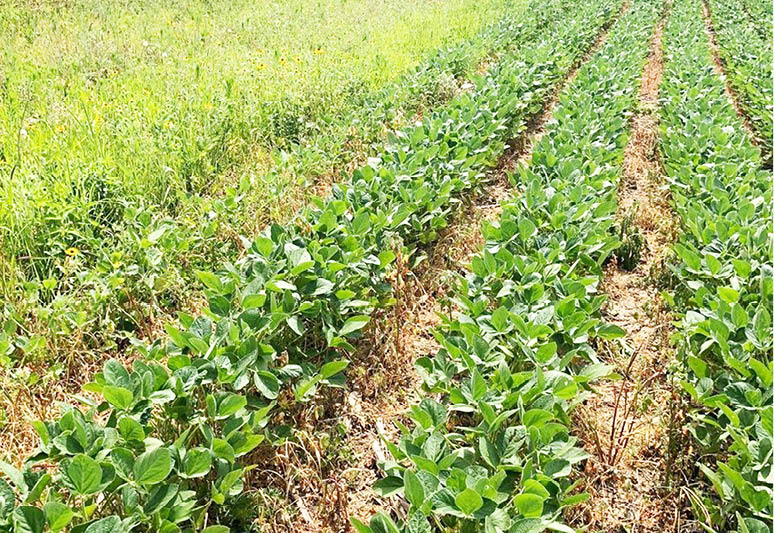For over 40 years, Alhaji Sulaiman Ahmad, has been into ginger farming in Kagarko LGA, in the southern part of Kaduna State.
“I started farming ginger on a small scale in 1980, which is about 42 years ago. The demand is increasing every year and many people are now joining the business,” he said.
23 Abuja-Kaduna train passengers still in captivity 186 days after
Why more Kaduna farmers are embracing ginger
Like Ahmad, producers of ginger in the southern part of Kaduna State are increasing in their number as ginger farming has proved to be a profitable venture.
“We are expanding our ginger farming. We are buying cars, building houses and taking care of our families,” said one of the farmers who spoke with Daily Trust.
“Many people have now joined the business but the only problem is the cost of fertiliser and insecticides.
“Ginger farming needs a lot of money and manpower. Most of our labourers come from the far north. But many of them were absent during this farming season because of the insecurity, banditry and kidnapping which have affected the quantity of ginger cultivation,” he said.
He said farming one hectare of land required 300 bags of organic fertiliser and 15 bags of inorganic fertiliser.
The farmer explained that a farmer could cultivate 150 bags of ginger on one hectare of land which if sold at N29,000 per bag will give him about N4.3 million. “His gain will not be less than N1.95 million,” he said.
Ginger farming in Southern Kaduna commences from April each year, while harvest starts between September and October. Within the same period, ginger is sold in the market while dried split ginger is mostly sold from November.
Ginger is produced in large quantities in Nok, Tsakiya and Kwoi communities of Jaba LGA while communities such as Maro, Maraban Walijo and Gidan Mana also produce a lot of ginger in Kachia LGA.
In Kagarko, villages reputed for producing the root crop include Kubacha, Aribi and Katugal.
Our correspondent gathered that in the Jagindi axis of Jema’a LGA such as Zankan, Anguwan Anjo, Gerti, Golkofa and other communities. Many Fulani pastoralists have also joined the rush into ginger farming, something unusual in the past.
Farmers say new customers are flooding the country from Europe, Asia, Middle East and other African countries to buy Nigeria’s ginger, reputed as one of the best in the world.
Ibrahim M. Abdullahi, another ginger farmer from Kagarko, who has been in the business for about 20 years, said a bag of dried split ginger is now sold at between N31,000 and N32,000 in Kagarko town.
“But the issue is about how much you pay for a bag of fertiliser. The NPK 20:10:10 is sold at between N17,000 and N18,000 while 20:15:15 is sold at N27,000 and insecticide is N3,500 per litre,” he said.
Yohanna Usman from Gidan Mana in Kachia LGA said ginger farmers need fertiliser to be supplied at the appropriate time.
His position was corroborated by Malam Bala Nuhu Mai Ashafa, another ginger farmer in Dangoma village of Jema’a LGA who said though he was new in the ginger business, he believed it is only when the government comes to their aid that farmers would celebrate.
He stressed that a major problem faced by farmers is price instability, adding that many farmers go into large-scale production as demand increases, but are downcast when prices fall.
Ashafa explained that the naira/dollar saga has contributed to the price instability in the ginger business, but said government can stabilise it by creating a price control board.
“Government can create, for example, a ginger marketing board, which I believe can protect farmers from heavy losses.”
Ms Josephine Ishaya from Jaba LGA who joined ginger farming some five years ago described it as a fruitful venture. She said she cultivated a one-hectare ginger farm and was able to use the proceeds in the renovation of her family home last year.
“I also paid my siblings’ school fees from the profit in ginger sales last year,” she said.
But there are those who describe the business as a gamble due to price instability.
Aminu Salihu Tahir, a ginger farmer from Jema’a LGA says even though it is a fulfilling trade, with a lot of gains, one cannot determine the price of the commodity when the harvest season ends.
“Presently, a 40kg bag of ginger sells at between N34,000 and N35,000, which was sold at N40,000 and N41,000 per bag last year.
“So, a farmer who has spent a lot during the planting season can lose a lot of money during the harvest season; it’s like a gamble – not always profitable like other ventures,” he said.
While farmers complain about fluctuating prices and access to fertiliser, another challenge is the lack of processing companies that could add value to ginger production.
The Kachia ginger factory, which in the 2000’s produced about 80 tons of oleoresin, four tons of oil and 100 tons of powder annually, has since closed down, throwing thousands of Nigerians out of jobs.
Though the government has made promises of reviving the company, not much has been done. However, Rimma Guarantee Network Ltd, one of the existing private producing and processing ginger companies in Zunuruk, Kaura LGA, said processing is one of the important segments of the ginger value chain.

 Join Daily Trust WhatsApp Community For Quick Access To News and Happenings Around You.
Join Daily Trust WhatsApp Community For Quick Access To News and Happenings Around You.


